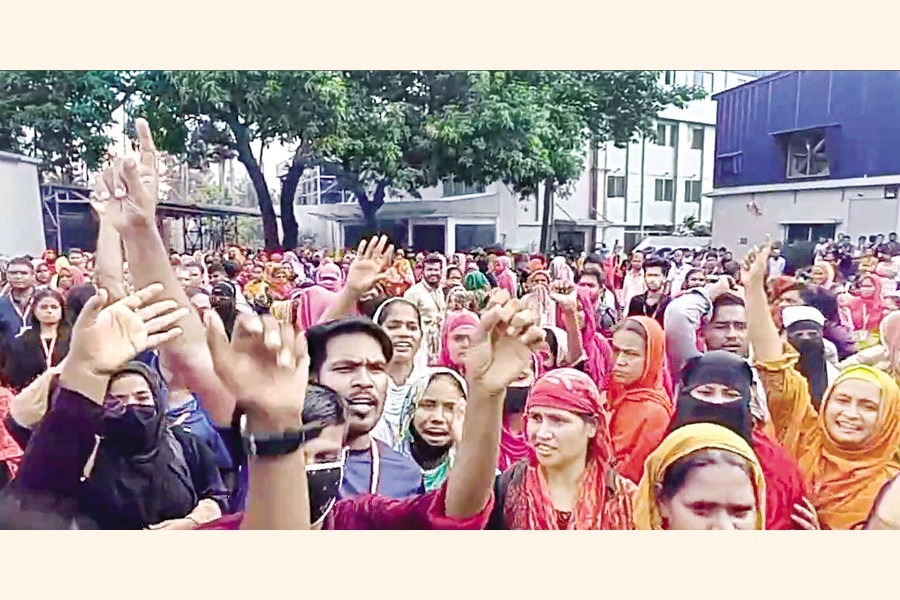
Published :
Updated :

Despite reports of relative calm in the readymade garment (RMG) hubs of Ashulia and Gazipur, the reality on the ground speaks for a different picture. Workers have continued to take to the streets, organising protests and blockading highways-a clear indication that the situation is far from stable. Just days ago, an agreement between factory owners and labour union leaders appeared to mark a major breakthrough, as the owners pledged to meet all 18 of the workers' demands. This agreement was significant, as it addressed longstanding issues such as the minimum wage, payment of overdue wages, attendance bonus, fair recruitment practices, and other welfare concerns that workers had been asking for long. Under the terms of the agreement, some of the demands were to be implemented immediately, while others scheduled to be rolled out in a short time-frame.
The announcement of the agreement, along with a joint statement from both parties, seemed to defuse tension, with most factories resuming operations and worker-attendance quickly picking up. Two hundred fifty-three out of 272 BGMEA-registered garment units reopened in Ashulia on Tuesday. However, the ongoing protests and disruptions suggest that peace in the industrial belt is still elusive and that deeper issues may still need to be addressed before the situation can truly be considered resolved.
So, what actually stood in the way of getting things in order? Reports from various newspapers, quoting agitated workers, highlight that the current unrest stems from the failure of certain factory owners to fulfil their promises to pay overdue wages. This has sparked the tension afresh, resulting in the tragic death of a garment worker and injuries to several others during clashes with law enforcers. In response, garment factory owners in the Ashulia area have requested heightened security to restore order. The Acting President of the BGMEA issued a statement claiming that the labour situation has improved substantially, attributing this to the efforts of joint security forces. However, industry observers argue that these statements are merely face-saving attempts, pointing out that the problem lies in the owners' failure to honour agreements, particularly those requiring immediate attention. Economist Dr. Debapriya Bhattacharya, Head of the government's white paper preparation committee, echoed these concerns after meeting with labour union leaders this week. He noted that despite their commendable role in the country's economic development, garment workers have long been deprived of fair wages and other benefits. This endemic injustice, coupled with frequent violation of labour laws, has made it challenging to swiftly resolve the current crisis and restructure the industry in a more equitable manner.
Given the industry's failure to create a healthy workplace atmosphere, it is crucial that the BGMEA promptly ensured that the errant factory owners comply with the terms of the agreement. Operating factories under tight security is not a sustainable solution. The focus should be on the workers, as their motivation is the key, and it is the responsibility of the owners to foster a positive and engaging work environment.


 For all latest news, follow The Financial Express Google News channel.
For all latest news, follow The Financial Express Google News channel.